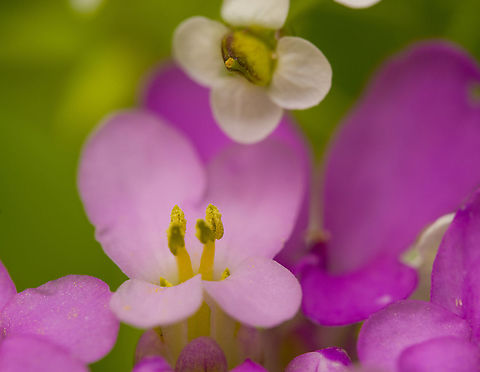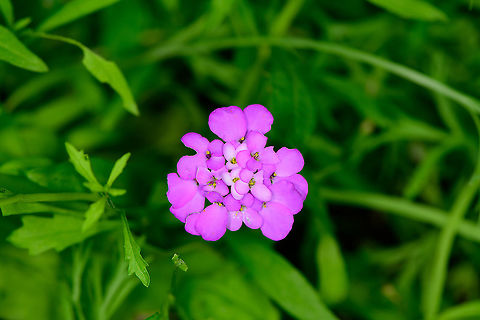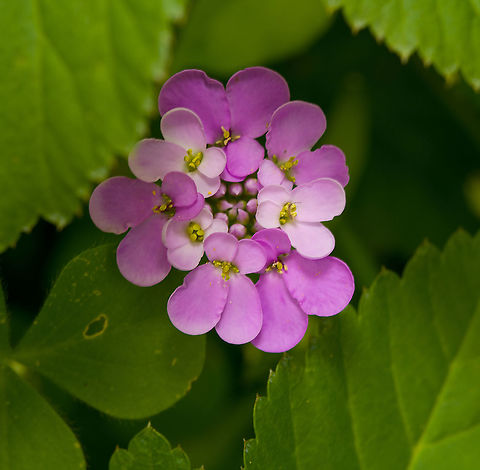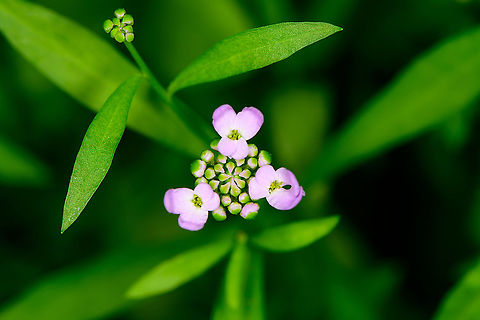
Appearance
The biological form of ''Iberis umbellata'' is ''hemicryptophyte'' ''scapose'', as its overwintering buds are situated just below the soil surface and the floral axis is more or less erect with a few leaves.The stem is twisted at the base while the flowering branches are erect and leafy. This plant reaches a height of 30–50 centimetres. The leaves are green and linear-lanceolate, 15–25 millimetres long. The flowers are in umbel-shaped corymbs. The calyx is violet and the corolla is composed of four white, pink or purple petals. The petals are rounded at the apex, with the peripheral ones forming a large vexillum 8–10 millimetres long. The flowering period extends from May through June. The flowers are hermaphroditic and pollinated by bees and butterflies. The fruit is a silique 7–10 millimetres long.

Naming
The genus name derives from "Iberia", the ancient name of Spain, while the species epithet comes from the Latin "umbel", meaning "umbrella" and refers to the shape of the inflorescence.
Distribution
This species is native to the Mediterranean region. It is present in most of Europe, especially along the coasts, from Spain to Greece and in northern America.
Habitat
It grows in dry rocky hillsides, in bushy areas and in clearings, preferably on calcareous soils, at an altitude of 0–1,300 metres above sea level.References:
Some text fragments are auto parsed from Wikipedia.